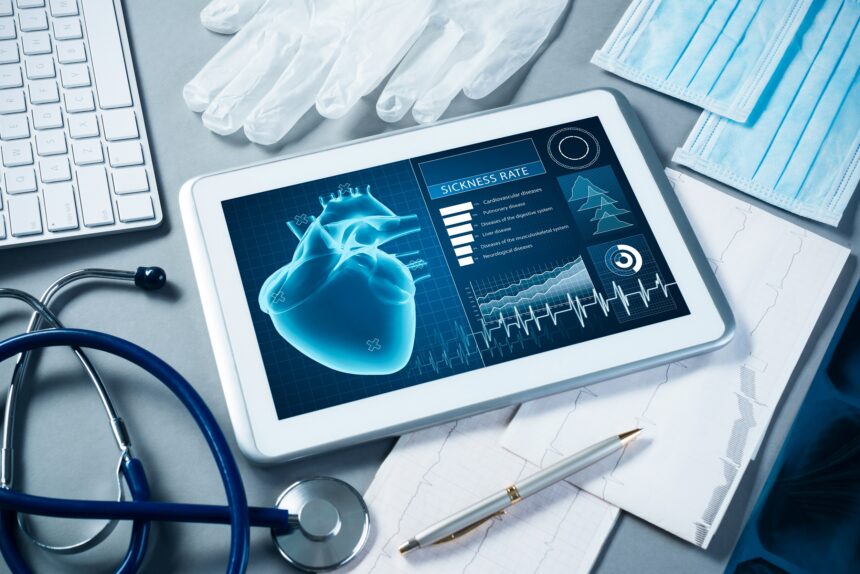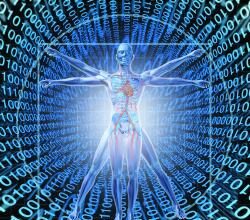Healthcare has always been an area where technology has been positively vital. Improved technology can literally save lives. In the past few years, new tech has been coming out which has a tremendous amount of life-saving potential. In this article, we will go over the top 5 medical technologies for 2020 implemented as part of medical software or apps which can improve the efficiency of a doctor’s work in their everyday practices. The importance of technology in healthcare is ably demonstrated by some of the apps and software that are on the horizon, so let’s dig deeper.
- 1. Software for Patient Data Management
- ● EHR/ERM Systems
- ● Centralized Systems for the Monitoring of Hospital Patients
- ● ePrescription and Medical Billing Software
- ● Healthcare Big Data Analytics Tool
- 2. Medical Practice Data Analytics and Management Software
- Software for the Collection and Analysis of Patient-Generated Data
- 2. mHealth Applications for Patients and Doctors
- 3. Care Management Software
- Are there any Potential Drawbacks to these Current Trends in Healthcare?
1. Software for Patient Data Management
Healthcare data management is the process of storing, protecting, and analyzing data related to the health of many individuals. This data is taken from many diverse sources. Managing the wealth of available healthcare data allows health systems to assist patients better than was ever possible in the past. Treatments can be personalized as never before. Communication between doctors and patients can be improved, as well as between different doctors who are consulting on cases together. Because of all this, better health outcomes are likelier for a higher number of patients. Simply put, the application of specialized software for patient data management improves treatment quality. It also allows for the automation of some tasks on which a doctor would once have spent a great deal of time. The benefits of technology in medicine can be time-saving as well as life-saving. Here are some types of software on the market today that serve as patient data management tools
● EHR/ERM Systems
EHR/ERM software, especially those built using blockchain technologies, creates an electronic system of patients’ records updated in real-time. These systems often represent many medical breakthroughs within a single platform.
● Centralized Systems for the Monitoring of Hospital Patients
These systems provide off-site monitoring of patients by technicians. They offer a way for patients and clinicians to monitor their charges from a distance. For example, through the use of sensors and high-definition cameras, clinicians can monitor blood pressure, heart and respiratory rates, pulse oximetry, and more. If something goes wrong, an alarm is generated, letting them know that help is needed.
● ePrescription and Medical Billing Software
This software is to expedite the prescription and payment processes, physician offices have begun using ePrescription software. In just a few clicks, a prescription is sent. It can be filled and waiting for the patient when they get to the pharmacy. Meanwhile, medical billing software handles the entire monetary transaction. Insurance claims are received and verified. Payment is processed, and the drugs are tracked so that nothing goes off course. This tech in healthcare can prevent both fraud and accidents.
● Healthcare Big Data Analytics Tool
Software built on Big Data technology connects to all systems of the organization so that incoming data can be processed in real-time. By studying healthcare trends, plans can be made to streamline these processes and make them more expedient in the future.
2. Medical Practice Data Analytics and Management Software
More than 200,000 physicians in the U.S. are now employees of various public and private healthcare entities. 3 out of every 4 medical residents will start their careers as employees of a medical group, hospital, or faculty. Because of this, better collaboration between primary caregivers and specialists can be a challenge. In the results, the opportunity to coordinate treatment decreases, which leads to worse patient outcomes. The solution is the Medical Referral Management and Consulting Software. This healthcare tech can be used to speed up the decision-making process so a patient can more rapidly understand the best course of action for their treatment. By implementing this software, clinics and hospitals also see better workflow amongst their employees. It comes with a support system for both doctors and patients, and there is less chance of information being misinterpreted by any of the entities involved. Medical practice management software is similar in some ways but also has some critical differences. It is meant to be unique to one organization or entity. By using it, different administrative and clinical aspects of practice become easier to control. Moreover, you can customize them in such a way that there are aspects of the dashboard which are unique to your facility.
Software for the Collection and Analysis of Patient-Generated Data
IoT and the advent of 5G technologies are also going to make a huge difference in medical facilities in the coming years. Here are some exciting ideas that are going to incorporate this kind of software.
● Remote Patient Monitoring Systems
These platforms help to increased patient accountability. Healthcare providers can now generate a “report card” of actual patient therapy compliance, rather than relying on the veracity of patient reports. This tech will make for less human error or fraudulent reporting by workers within hospitals and care facilities. It is remarkably adaptive. While most current systems are built on a feedback loop, these new setups iterate on that feedback and adjust for improved patient outcomes.
- Wearables Devices for Patients
- Bluetooth scales would be one example of this sort of tech. They can track weight and body fat percentages. There are also mobile apps that can track dietary patterns or mental health issues based on input from the individual who is wearing them. Other devices can help track blood sugar levels for diabetics or blood pressure for those who are at higher risk for cardiac events.
2. mHealth Applications for Patients and Doctors
mHealth applications are in the process of taking the market by storm. Under the Statista the mobile health market will reach $37B by the end of this year. This growth is not surprising, as more and more people choose the medical provider with digital capabilities as a mobile app. Thanks to a wide range of mHealth app features, they can serve many different purposes, including:
- As Communication Tools for Doctors
This application should be safe and highly performed.
- As AI-Driven Applications
For example, symptom-checker apps are becoming popular, as are those integrated with doctor on-demand features. A patient can submit their symptoms and figure out what specialist they need to see in a few simple steps. Or AI-based apps with image or voice recognition functions can much help doctors in their practice. For an example of this sort of app would be one for automated X-ray image analysis. A doctor would be able to study a patient’s X-rays on their mobile device while in transit if time was of the essence.
- AR/VR-Based Apps for rehabilitation and medical training and studies
These are another example. VR-based apps along with special devices help patients in physical and psychological rehabilitation. AR/VR app for medical students to help them to practice opening a cadaver or performing complex surgeries with no tools required. When it comes time for surgery on a living person, an augmented reality app can allow a doctor to see inside a patient’s body with remarkable precision as they are on the operating table.
3. Care Management Software
The last of the five medical technologies that we wanted to discuss is various software programs intended for care management. It is true that digital healthcare tech will never completely replace the personal relationship between a doctor and their patients. However, digital healthcare tech solutions should be able to improve those relationships. With this technology in place, the treatment that a doctor prescribes should be more effective, because patients can feel more engaged. Here are some examples.
● The Telemedicine Application:
These apps let a patient set up an appointment with a doctor and put the patient in touch with a doctor face-to-face without them having to come to the clinic. Furthermore, you can integrate telemedicine platform with medical billing software that doctors can make the e-prescription and get paid for the consultation.
● The Patient Portal
Patient portals fulfill some of these same functionalities. A patient can use them to see their past appointment history and keep track of any collaboration between their doctor and other specialists.
● Doctor Appointment Visit Scheduling Software
This medical scheduling software helps medical staff to automate scheduling and even see 2 extra patients a day under the Deloitte report. It also means higher patient satisfaction rates as they can get urgent consultation when there is the nearest free time slot in the calendar or choose a convenient time for them. So, medical practice management software often proves to be equally helpful for both patients and doctors.
Are there any Potential Drawbacks to these Current Trends in Healthcare?
Patient engagement tools can enhance communication and help improve outcomes while reducing costs. Hence these five technologies are truly worth your investments if you want to expand your medical practice while improving patients’ care. But if you are unsure how to implement that in reliable medical solutions, don’t hesitate to get a quote on healthcare software development for your project from our engineers’ team who built different types of health platforms. Anyway, if you are going to buy a license for some platform or build your own solution, it’s no doubt truly efficient assistance for your healthcare practice.







